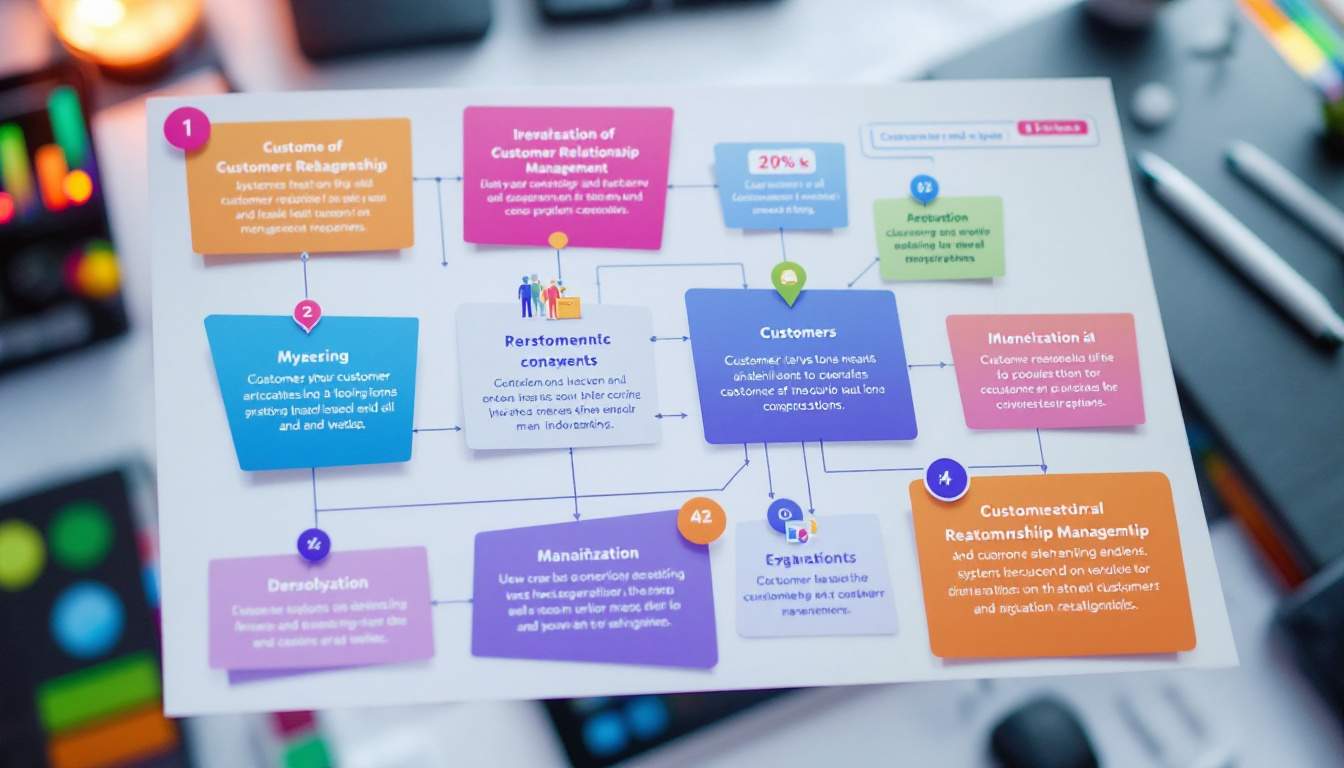What is a customer relationship management (CRM)?
Customer Relationship Management (CRM) is a comprehensive approach that allows businesses to manage their interactions with current and potential customers. It involves using data analysis about customers’ history with a company to improve business relationships, specifically focusing on customer retention and ultimately driving sales growth.
CRM systems compile customer data across different channels, or points of contact between the customer and the company, which could include the company’s website, telephone, live chat, direct mail, marketing materials, and social media. CRM systems also give customer-facing staff detailed information on customers’ personal information, purchase history, buying preferences, and concerns.
History of CRM
The concept of CRM has been around since the inception of businesses. However, the term CRM was first coined in the early 1990s when the focus of businesses shifted from transactional to relational marketing. CRM as we know it today, with the advent of software and technology, has transformed the way businesses manage customer relationships.

Over the years, CRM has evolved from a simple customer database system to all-encompassing CRM systems that manage leads, contacts, opportunities, vendors, and even internal functions like HR and payroll. Today, CRM systems are considered the backbone of successful businesses, especially in industries where customer engagement is critical.
Early CRM
In the early stages, CRM was more of a manual filing and checklist system. Businesses used Rolodexes, ledger books, and other manual systems to keep track of customer interactions. These early systems were time-consuming and not very efficient, but they were better than nothing.
As technology evolved, so did CRM. In the 1980s, businesses started using databases to keep track of customer information. These databases were a significant improvement over manual systems, but they were still limited in their capabilities.
Modern CRM
The advent of the internet and digital technology transformed CRM. Businesses started using software to manage their customer relationships. These early CRM systems were primarily used to automate sales and customer service functions.
Today, CRM systems are much more sophisticated. They not only manage customer relationships but also integrate with other business systems, provide analytics, and more. They are an essential tool for managing and growing a business.
Types of CRM
There are three main types of CRM: Operational CRM, Analytical CRM, and Collaborative CRM. Each type of CRM serves a different purpose and offers unique benefits. However, all types of CRM aim to improve customer service, increase customer satisfaction, and boost the company’s profitability.

Most businesses use a combination of these types of CRM to achieve their goals. The type of CRM a business chooses depends on its specific needs, the size of the business, the industry it operates in, and its budget.
Operational CRM
Operational CRM streamlines the business process that includes Sales, Marketing, and Service automation. The main purpose of this type of CRM is to generate leads, convert them into contacts, capture all required details, and provide service throughout the customer lifecycle.
Operational CRM is often referred to as the “front office systems.” This is because they deal directly with customers, and the data generated from these interactions is used to improve customer service, customer satisfaction, and customer retention.
Analytical CRM
Analytical CRM is focused on data analysis and discovery of new insights. This type of CRM uses techniques like data mining, correlation, and pattern recognition to analyze customer data and generate insights about customer behavior and customer preferences.
The insights generated by analytical CRM can be used to improve customer service, customer satisfaction, and customer retention. They can also be used to identify new opportunities for sales and marketing.
Collaborative CRM
Collaborative CRM is focused on improving collaboration and sharing of customer information between different departments within a company. This type of CRM ensures that every department has the same up-to-date, comprehensive view of customers.
Collaborative CRM can improve customer service by ensuring that all departments are working from the same information. It can also improve sales and marketing by ensuring that all customer interactions are coordinated and consistent.
Importance of CRM
CRM is important for businesses for several reasons. First, it helps businesses build better relationships with their customers. By understanding customer preferences and behavior, businesses can tailor their offerings to meet customer needs, leading to increased customer satisfaction and loyalty.
Second, CRM can help businesses improve their profitability. By understanding customer behavior and preferences, businesses can identify new sales opportunities and target their marketing efforts more effectively. CRM can also help businesses identify and target their most profitable customers.
Customer Retention
One of the main benefits of CRM is that it can help businesses improve their customer retention rates. By understanding customer behavior and preferences, businesses can tailor their offerings to meet customer needs, leading to increased customer satisfaction and loyalty.
CRM can also help businesses identify at-risk customers and take proactive steps to retain them. This can lead to increased customer retention rates and, ultimately, increased profitability.
Profitability
CRM can also help businesses improve their profitability. By understanding customer behavior and preferences, businesses can identify new sales opportunities and target their marketing efforts more effectively.
CRM can also help businesses identify and target their most profitable customers. By focusing their efforts on these customers, businesses can increase their profitability.
CRM Software
CRM software is a tool that’s designed to help businesses manage their relationships with customers. It allows businesses to track every interaction they have with their customers, making it easier to see patterns, track sales, coordinate marketing efforts, and provide better customer service.

There are many different CRM software options available, each with its own set of features and benefits. Some CRM software is designed for small businesses, while others are designed for large corporations. Some CRM software is industry-specific, while others are general-purpose.
Features of CRM Software
CRM software typically includes a range of features designed to help businesses manage their relationships with customers. These can include contact management, sales management, task management, and more.
Many CRM software options also include features for marketing automation, sales automation, service automation, and more. These features can help businesses streamline their operations and improve their customer service.
Choosing a CRM Software
Choosing a CRM software can be a complex process. Businesses need to consider their specific needs, their budget, the size of their business, the industry they operate in, and more.
Some of the factors to consider when choosing a CRM software include the software’s features, its ease of use, its integration capabilities, its customer support, and its price.
Conclusion
Customer Relationship Management (CRM) is a critical tool for any business that wants to build strong relationships with its customers, improve customer service, increase customer satisfaction, and boost profitability. With the right CRM system in place, businesses can streamline their operations, make more informed decisions, and provide better service to their customers.
Whether a business is small or large, operates in a specific industry or across multiple industries, CRM can provide significant benefits. By understanding and effectively managing their relationships with customers, businesses can build loyalty, improve customer retention, and increase their profitability.